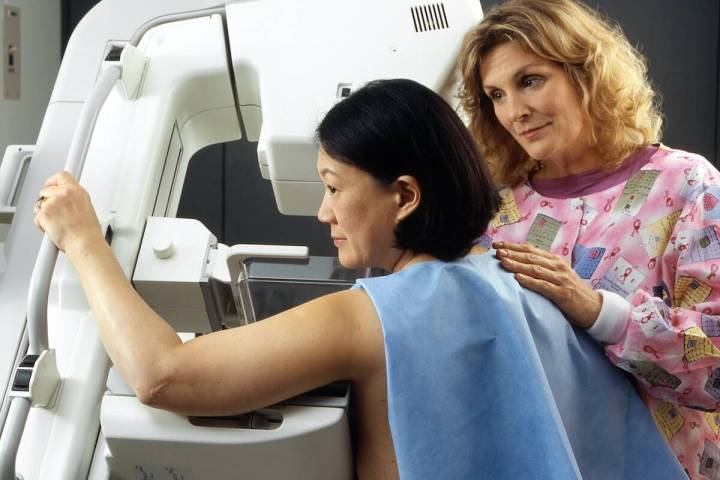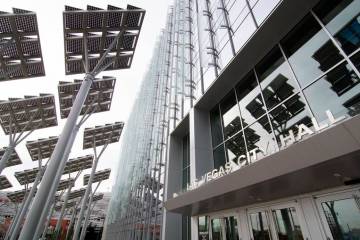Bad news for Bernie Sanders and Donald Trump: Americans are lurching back to rationality on trade.
Multiple polls show that with the Great Recession behind us, globalization is regaining popularity. The freshest evidence arrived via a Pew Research Center survey. In mid-May, the organization found that 43 percent of respondents held a “positive view of the financial impact of free trade agreements, up 17 points since 2010.”
In a red vs. blue who’d-have-thunk-it, more Democrats thought tariff-lowering pacts “have been good for the U.S.” than Republicans. Two likely causes? “Younger adults” (those under 30) are “particularly likely to view free trade agreements positively,” as are Latinos.
In late April, NBC News and The Wall Street Journal asked: “In general, do you think that free trade between the United States and foreign countries has helped the United States, has hurt the United States, or has not made much of a difference either way?” Thirty-seven percent picked “helped.”
The Journal’s Siobhan Hughes called the result “a turning point: it marks the first time in more than 15 years that a plurality of Americans said that free trade helped. The last time Americans had more positive than negative views of trade was in December 1999, when 39 percent of respondents said that free trade agreements benefited the country and 30 percent who said the deals hurt.”
Gallup’s February trade poll supplied encouraging results, too. Asked to opt for “foreign trade as an opportunity for economic growth through increased U.S. exports” or “a threat to the economy from foreign imports,” 58 percent chose the former.
However promising, the survey findings are somewhat puzzling, given the powerful forces working overtime to denigrate free trade. Unions, the environmental left, countless pundits, populist pols left and right — lots of people make their livings assaulting the notion of capitalism on a planetary scale.
But free trade has a secret weapon: foreign direct investment (FDI).
“The United States is home to more [FDI] than any other country in the world,” according to the U.S. Department of Commerce’s Vinai Thummalapally, “with a total stock valued at $2.8 trillion as of 2013, approximately 18 percent of U.S. gross domestic product. FDI flows into the United States are robust, totaling nearly $231 billion in 2013, up from $170 billion in 2012.”
One FDI marquee item came courtesy of Volvo. The Swedish automaker will build “its first [factory] in the United States since entering the market 60 years ago,” The New York Times reported. Initial production is planned for 2018, and in time, 4,000 South Carolinians could be hired.
Most FDI occurs on a smaller scale, though. In the last several months:
• Auto-parts manufacturer Ficosa announced a new facility in Tennessee. The Spanish multinational will spend $58 million and create 550 jobs.
• Wells Lighting, based in Korea, picked Georgia to host its North American headquarters. The company will make a $30 million investment and plans 200 hires.
• Royal Interpack, a subsidiary of Thailand’s Royal Group, announced a new recycled-plastic operations center — and 135 jobs — in Indiana.
• Israel’s Caesarstone Sdot-Yam, a manufacturer of “quartz surfaces,” chose to expand production in Georgia, an investment predicted to create 130 positions.
• Iris Ohyama, a Japanese vendor of consumer plastics, placed its “Western United States Regional Headquarters” in Arizona. It will spend at least $33 million and hire 100 workers.
• Praising “renowned Southern hospitality and friendly people,” U.K.-based answering service Moneypenny selected South Carolina for a new operations center. Forty openings will be filled immediately, with plans for up to 400 within the next five years.
• Wacker Chemical Corp., of Germany, announced the creation of 15 jobs through a $60 million expansion of its Kentucky polymer-binder factory.
• France’s 2CRSI, which makes customized servers, established its North American headquarters in North Carolina. Two employees are working now, with between five and eight to come. The firm’s COO said 2CRSI is “here to stay in the U.S.” and hopes “that we could actually build or take over a small factory next year to do the same thing we do in France.”
To his credit, President Barack Obama is dedicating some of his dwindling presidency to winning fast-track authority and boosting support for the Trans-Pacific Partnership. Predictably, he’s stressing freer trade’s potential for enhanced exports. But FDI offers another tool in the campaign for greater globalization. The polls suggest that millions of Americans understand how money spent abroad often returns to the nation in the form of quality jobs. It’s a reservoir of good will that the president should employ.
Former Nevadan D. Dowd Muska (www.dowdmuska.com) writes about government, economics, and technology. He lives in Corrales, N.M.







